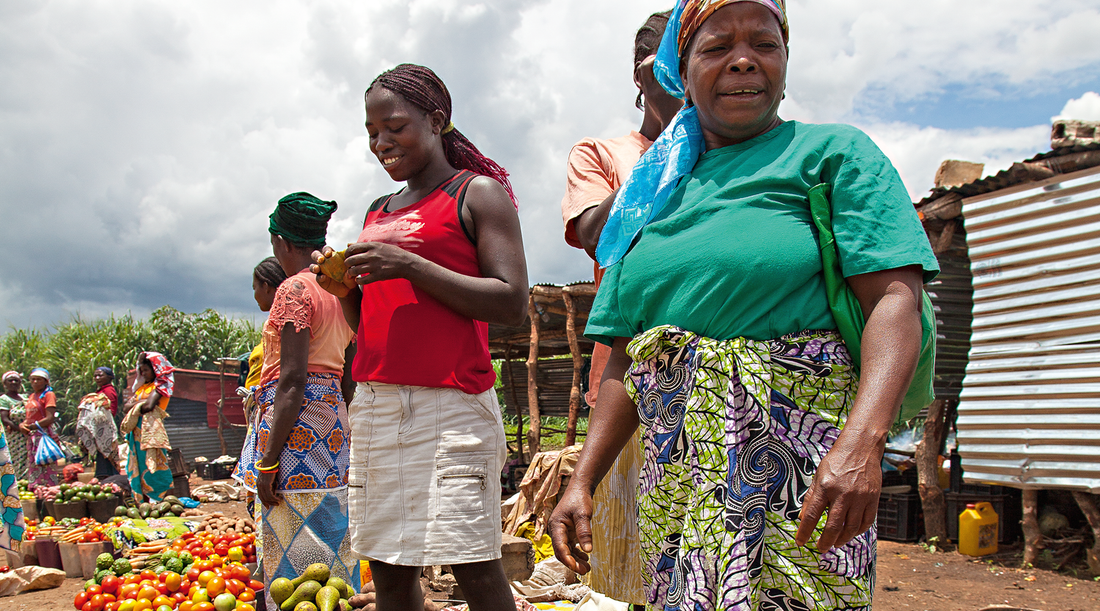
STREET MARKET - Festival of Colors and Flavors on the Way to Waku-Kungo
Share
It's in street markets, like this one between Quibala and Waku-Kungo, that you can truly savor the flavors of Angolan fruits and vegetables. It's a festival of colors, flavors, and aromas worth visiting, even if only to chat with the children and adults who hit the streets every day to sell the freshest, most natural produce ever to be found. If the Angolan soul could be divided into fragments, these street markets would be one of them. One of the most important.

Cassava, sugarcane, corn and peanuts, bananas and sweet potatoes, cabbage, garlic and onions, avocados, pineapples, beans, and sisal. This street market on the way to Waku-Kungo and near Quibala offers no shortage of these and many other fruits, coloring the road and filling it with life. It's no coincidence that Quibala, with its agricultural potential, is considered one of the breadbaskets of Kwanza Sul province, supplying produce to the markets of Amboim (Gabela) and Luanda. In fact, the entire region boasts locations perfectly suited to agriculture. The city of Waku-Kungo, for example, was chosen for the implementation of a milk production program, which aims to stimulate the development of small and medium-sized businesses. In addition to milk, large-scale production of cereals and legumes, such as corn and beans, is also planned, with production expected to occupy several thousand hectares.
Nothing that even touches these people who, with a smile on their lips and their children by their hands and on their backs, take to the streets every day to sell colorful fruits and vegetables.

Walking through this market, as with many other street markets in Angola, is a veritable celebration. Beyond the festival of aromas and colors, at every turn there's a reason to stop, whether because there's a fruit that demands a closer look, a child performing an acrobatic stunt, or simply because your senses demand you stop and observe everything carefully. Usually, during one of these countless stops, there's always time for a chat with one of the vendors, each able to explain the benefits of consuming each fruit or vegetable. It's an ancient wisdom that has been passed down from generation to generation and that almost sounds effortless on the lips of these people.

Getting home with the fruits you buy from this street vendor intact is what proves to be a difficult task. It's natural to want to taste, right there, half a dozen of them, brought by the hands of the boys who sell them, side by side with the women and older men. The flavor will seem more intense, and it's likely that no other fruit or vegetable bought in a conventional supermarket will appeal to you. Because these are products picked directly from the land, at the right time, without haste. Just as happens, in fact, with the hours that pass, day after day, through life in this market on the way to Waku-Kungo, nameless but full of soul.
THE MOST NATURAL THING YOU WANT TO TRY, RIGHT THERE, HALF A DOZEN OF THEM, BROUGHT BY THE HANDS OF THE KIDS WHO SELL THEM, SIDE BY SIDE, WITH THE WOMEN AND OLDER MEN.
Text: Andréia Barros Ferreira
Photography: Manuel Teixeira
